TechRadar Verdict
The Huawei FreeBuds Studios are a great pair of over-ear headphones, brimming with features like active noise cancelling (ANC), an awareness mode, two-device connectivity, and Bluetooth 5.2 to name a few. While the FreeBuds Studio don’t have the best audio performance out there, Huawei has created a bold debut over-ear option that delivers immersive sound and standout style. What really helps the Studios is their competitive price, so even if you can get better sound, you probably won't find it at a lower price in such a good looking package.
Pros
- +
Great value
- +
Very comfortable
- +
Good noise cancelling
- +
Clean sound
- +
Awareness mode works surprisingly well
Cons
- -
Audio quality isn’t best in class
- -
Bass could be better
- -
No iOS support for companion app
Why you can trust TechRadar
One-minute review
Huawei’s FreeBuds Studio over-ear headphones are blessed with a simple, clean design that should suit most, with a premium and comfortable fit and finish, thanks to the super soft padding and nicely balanced headband pressure.
The FreeBuds Studio deliver a clean, crisp and immersive sound. Bass isn’t in your face, occasionally to the detriment of the listening experience, but vocals and instruments come through clearly, with no distortion detected while testing across a wide range of musical genres. Meanwhile, Bluetooth 5.2 means you can watch wirelessly without your movies looking like a cheap 1970s dub job.
The active noise cancellation (ANC) works well. It isn’t class leading, but excels at dampening out the noise of a busy commute, especially if your music volume is anything above low.
Scrolling through the ANC modes via the easily accessible ANC button takes you to awareness mode, which opens the outside world up by pumping in ambient sound. It seems to prioritize vocals which is really useful when out and about.
The battery is more than adequate for day to day use, with a claimed 24 hours of playback on a single charge with ANC switched off, and probably 15 hours of playback with ANC on. While this is less than some of its competitors like Sony’s WH-1000XM4 at 30 hours on a full charge, you’ll still be able to use the FreeBuds Studio for days in a row without having to think about charging them, or for a long haul flight. Speaking of charging, it’s really quick thanks to fast charging.
The controls are intuitive, combining buttons and touch, and the Studio’s can also pair with two devices at the same time.
The fly in the ointment of the Huawei experience in general is the app compatibility, with the AI Life app not supported for iPhone users, and the version available through Google Play being out of date. To get the full FreeBuds Studio experience, you need to download the companion app through Huawei’s AppGallery, which, if you don’t have a Huawei phone means another app ecosystem on your Android device.
This really isn’t a big deal if you’re a bit geeky, or don’t think you’ll value the additional customization the app offers, but it’s just a bugbear we’re seeing across Huawei’s audio line.
As a value for money proposition, you can’t really do better than the FreeBuds Studios. While they cost £299 / AU$499 (about $400) at launch, they’re regularly discounted to around £220 / AU$350, putting them below the wireless headphones competition and making up for any shortcomings when it comes to app support and bass.
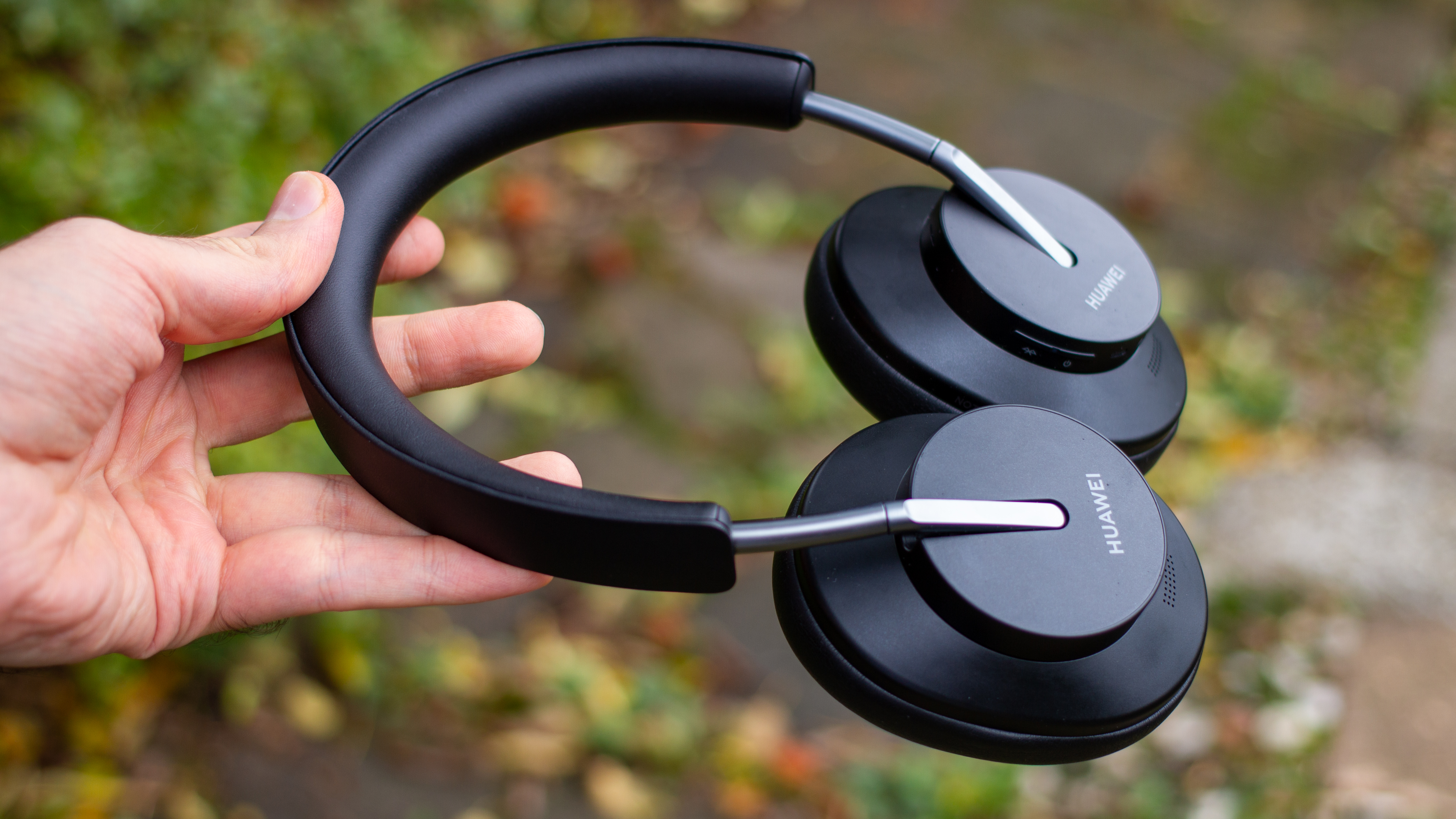
Huawei FreeBuds Studio price and availability
- Available in UK and Australia
- Not available in the US
- £299 / AU$499 at launch
Price is where the FreeBuds Studio shine. At the time of writing, you can bag them for around £220 / AU$350, despite costing £299 / AU$499 (about $400) at launch, putting them at the lower end of the price range compared to their Sony and Bose competitors, as well as being cheaper than the Apple AirPods Max.
Available in Australia and the UK, no US release has been confirmed, though there’s no reason you can’t bag a pair abroad and use them anywhere in the world.
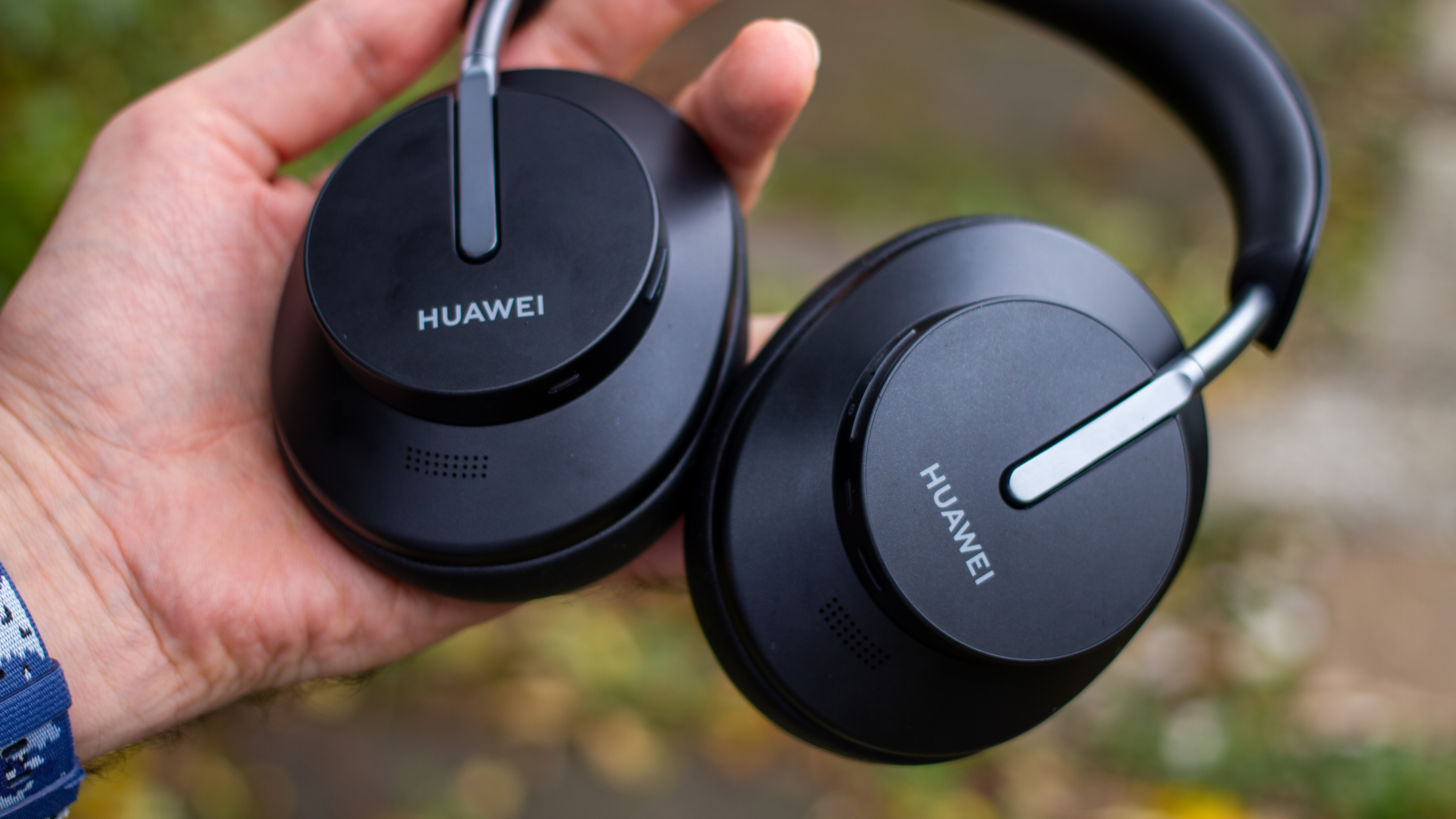
Design
- Comfortable to wear
- Carrying case included
- Available in black or gold
The FreeBuds Studio look spot on, are reassuring to hold, and lightweight at the same time. The headband and hinge feel premium and don’t give the impression that anything might snap in two – reassuring, albeit expected at the price.
The FreeBuds Studio can be picked up in black and gold, each sporting a metallic sheen on the hinge and ear cups for some understated flair.
The ear cups themselves are minimal and clean, with simple lines and ergonomically positioned buttons and touch controls. The padding on the headband and cups feels pillowy to the touch, with plenty of give where needed.
The headbands are on the loose side, and that actually adds to the FreeBuds Studio delivering an extremely comfortable experience – no danger of pressure headaches with these headphones here. That said, no headbanging either, so keep your death metal moves in check or expect some major slippage. The padded area within the ear cups is large, meaning most ears will fit comfortably within the cans without touching the sides or padding surrounds.
As for what’s in the box, we love a carry case, and Huawei included a neat magnetic window inside the FreeBuds Studio case for the included charging cable. While a bit on the large side, it delivers handy protection for a package that’s ultimately a sweet balance of style, function, and a sprinkling of added flair.
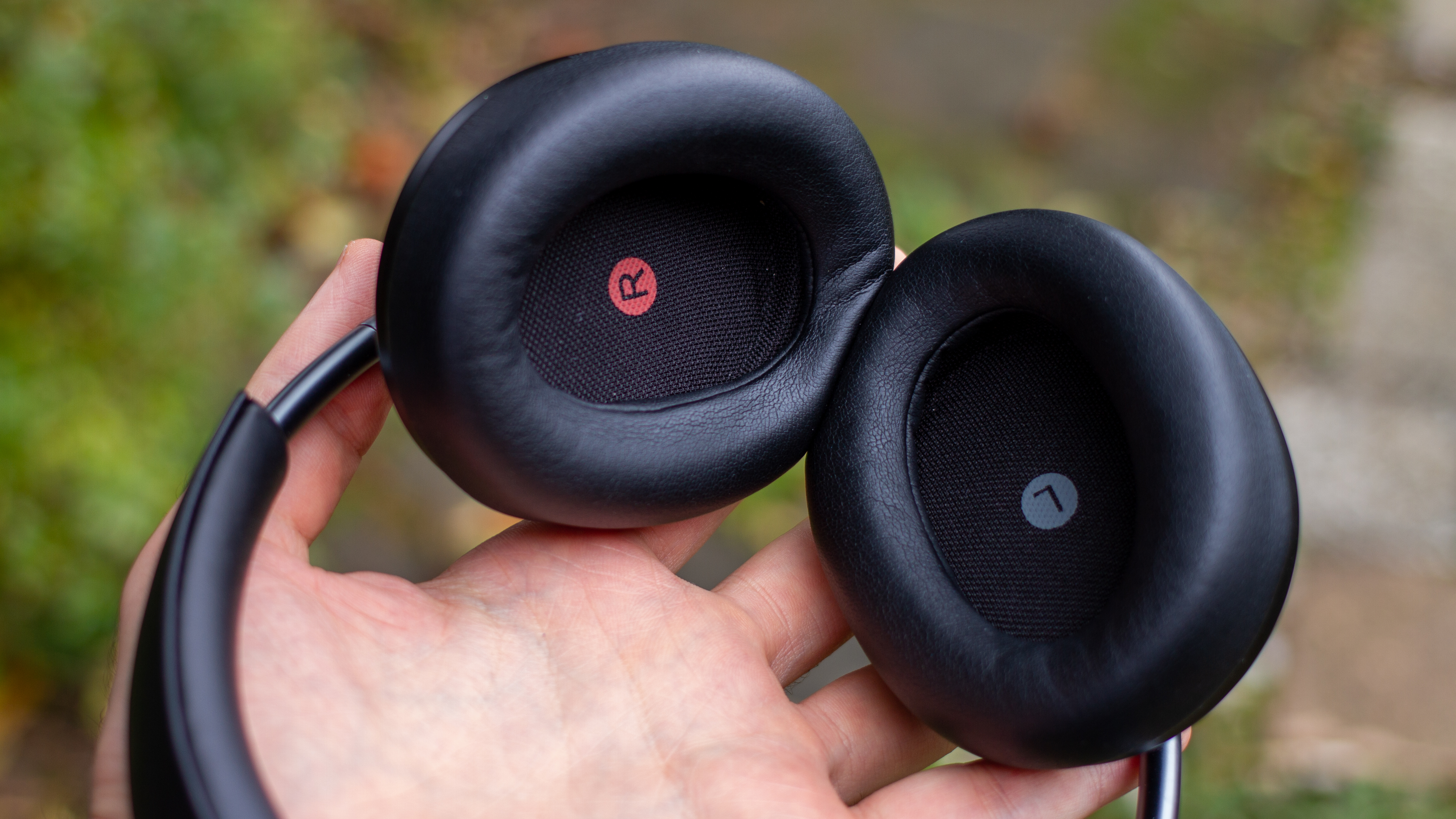
Audio performance
- Bass could be more prominent
- Clean and crisp vocals
- Refined stereo experience
To be fair to Huawei, the FreeBuds Studio are pretty stellar all-rounders. It’s when you get down to the details that they drop the ball, specifically with heavy bass in D&B and dubstep tracks – which lacked the stomach twisting thump we were hoping for at high volumes. Meanwhile, the mid-level ‘dush-dush-dush’ bouncing behind tracks like Call Me Maybe ended up reverberating in our necks rather than right through to the chest. On the plus, we noticed zero distortion even at maximum volume.
Vocals were consistently clean and crisp, especially female vocals – popstrel lovers rejoice. This obviously goes way beyond pop, from vocal house to anything Royksopp, high tones never detract, and we generally steered clear of the volume down button.
Clean instrumental sounds are exceptional. Jazz and classical tracks are probably where the FreeBuds Studio do their best work, giving the listener a refined immersive stereo experience with solid sound separation. The same can be said of opera, with big, bold baritone notes carried beautifully and soprano highs dancing against orchestral waves movingly.
Watching a movie with the FreeBuds Studio was a joy, and with the Bluetooth 5.2, the latency was unnoticeable. The surround sound experience and dialogue were clear, balanced and unintrusive, and in these lockdown times when you just want to escape your immediate space, you could do a lot worse than Huawei’s impressive debut.
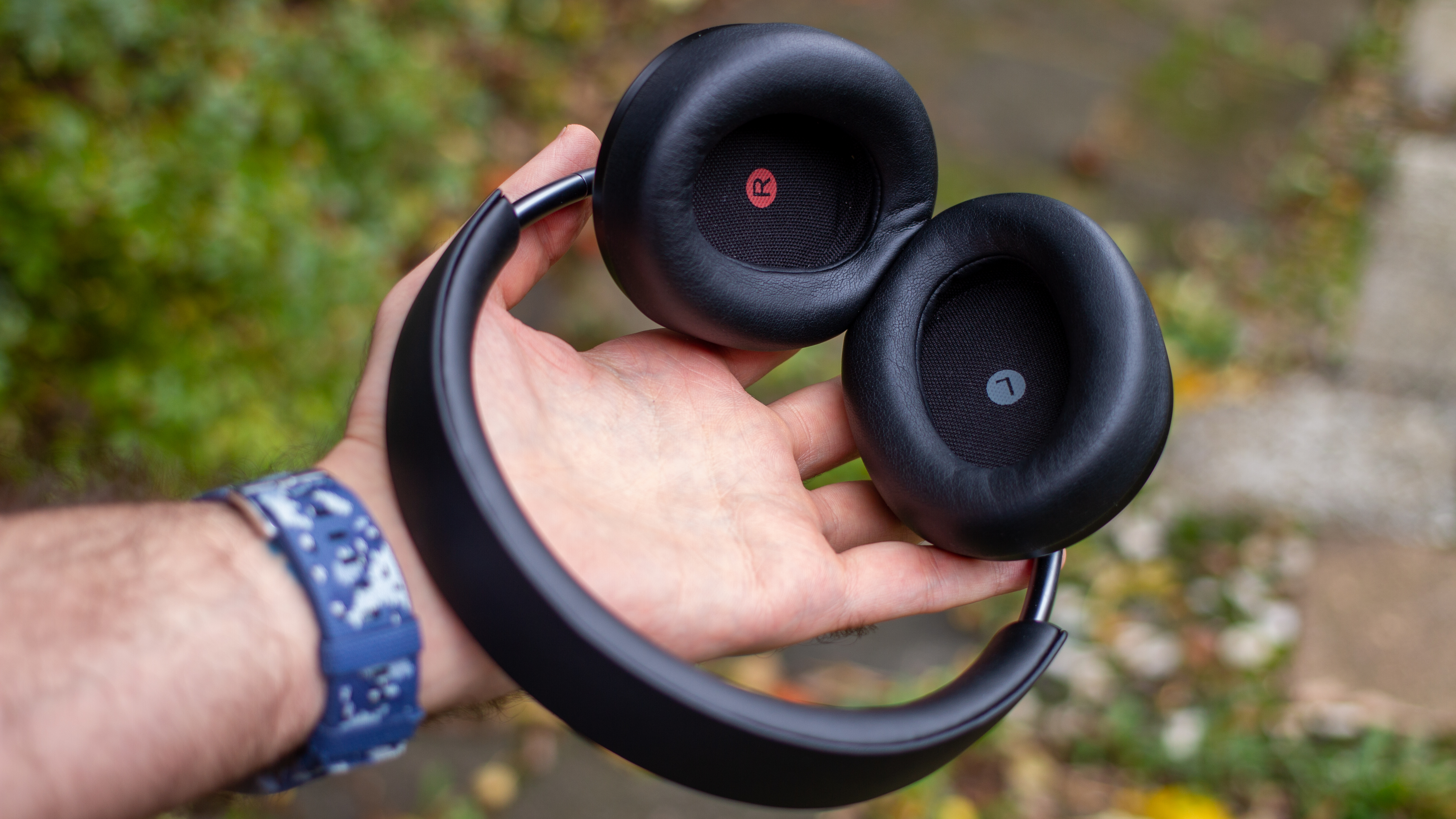
Noise cancellation and awareness mode
- Good noise cancellation
- Decent passive noise cancellation
- Awareness mode works well
Huawei’s active noise cancelling is very capable, but not class-leading. The slightly more expensive Sony WH-1000XM3 headphones are better, but only when you compare the two side by side.
It all starts with passive noise-cancelling (no ANC active), and the FreeBuds Studio keep low-level noise at bay. Activating ANC mutes whirs from PC fans, trains and traffic. As with all noise-cancelling headphones, it doesn’t eliminate surprise noises such as claps or taps, and exceptionally loud whirs can’t be masked (coffee machines, vacuum cleaners etc).
Scrolling through the modes with the conveniently positioned ANC button on the left cup is easy enough, clearly indicated by an enthusiastic (and slightly grating) voice announcing each setting.
Moving into awareness mode was a bit of a surprise at first. At medium music volume, the outside world was clear enough to hear. Conversations, keyboard taps and clicking fingers were amplified and matched the listening volume pretty well. This feature makes it easy to have full conversations or order a coffee without having to remove the headphones. At higher volumes this becomes less effective, but that’s to be expected.
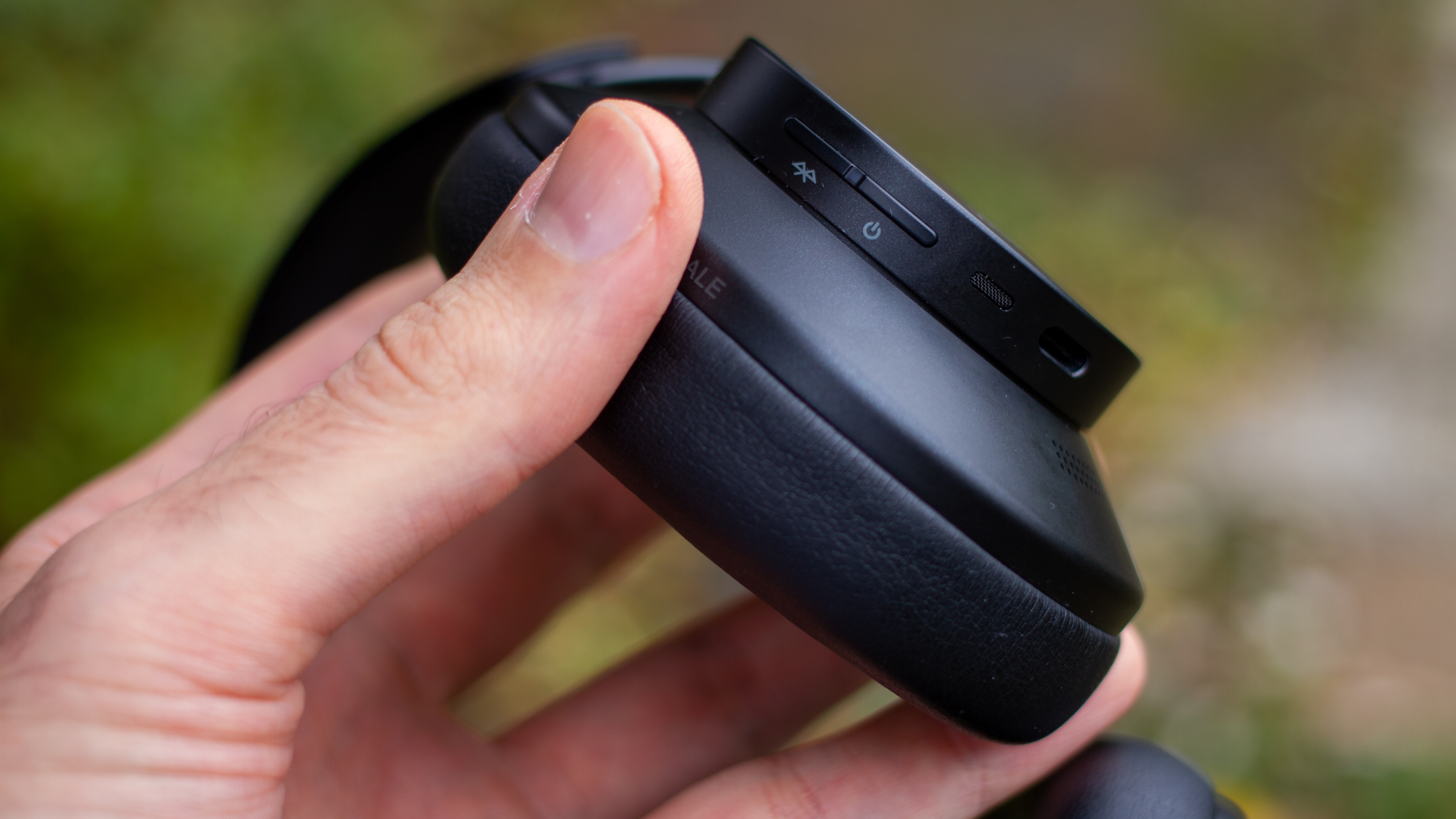
Battery, connectivity, and controls
- 24 hours of battery life
- Fast charging feature
- Huawei AI life app tricky to find
Charging the FreeBuds Studio is fast and easy, with a claimed five hours of playback (ANC enabled) after 10 minutes of fast charge, and eight hours of playback on 10 minutes of fast charge (ANC disabled). Huawei says the headphones are good for 24 hours of non ANC playback, which isn’t as much as its nearest Sony competitors, but adequate for day to day use. We used them with ANC on for three days of relatively heavy testing before the battery indicator changed from green to yellow.
Connecting to a smartphone is simple enough using Bluetooth 5.2 on both Androids and iPhone. But if you want the full list of features then you need to install Huawei’s AI Life app on your android phone – not the outdated AI Life app on the Google Play store which doesn’t recognize the FreeBuds Studio as a supported device. You need to download and install the .apk from Huawei’s website or through the AppGallery. Huawei isn’t helping its image as the awkward option with the awkward software that keeps letting down its excellent hardware. On the plus side, do this once, and you’re golden, so an ounce of patience will pay dividends.
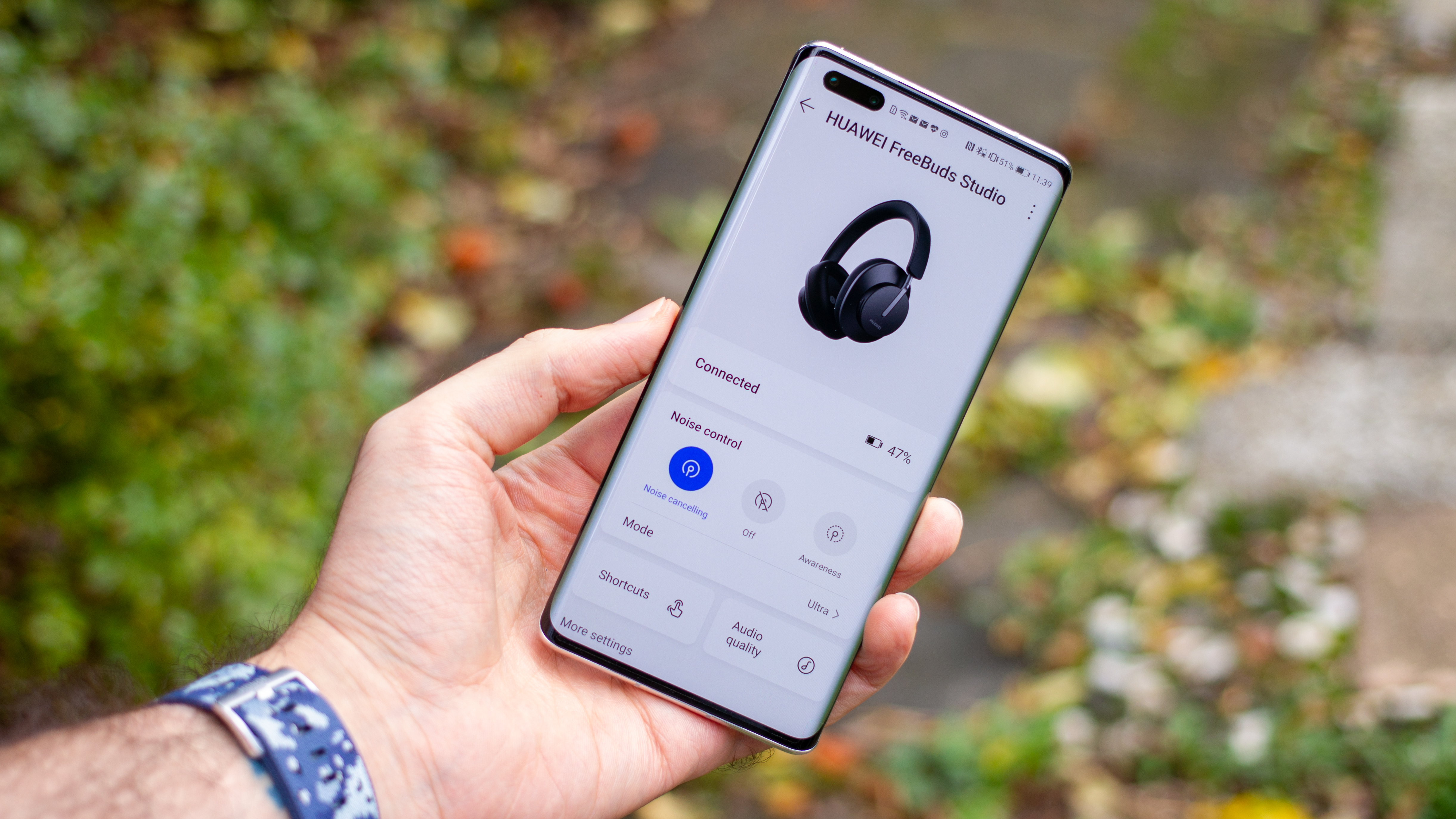
If you have an iPhone then you’re out of luck. The app isn’t supported in the App Store. The app is pretty limited and the default settings for the FreeBuds Studio are already impressive, so you won’t feel like you’re missing out on too much given the extent of on-body controls on offer.
The controls on the responsive area on the right cup are intuitive, with up, down, forward and backwards swipes doing what you’d expect to music playback, and taps for answering and hanging up on calls. We had a few accidental track skips when adjusting the headphones but these were few and far between so not a real annoyance or deal breaker.
Wear detection in our use was great when compared to other devices we tested, though this worked noticeably better on Huawei phones, which we found interesting.
Should I buy the Huawei FreeBuds Studio?
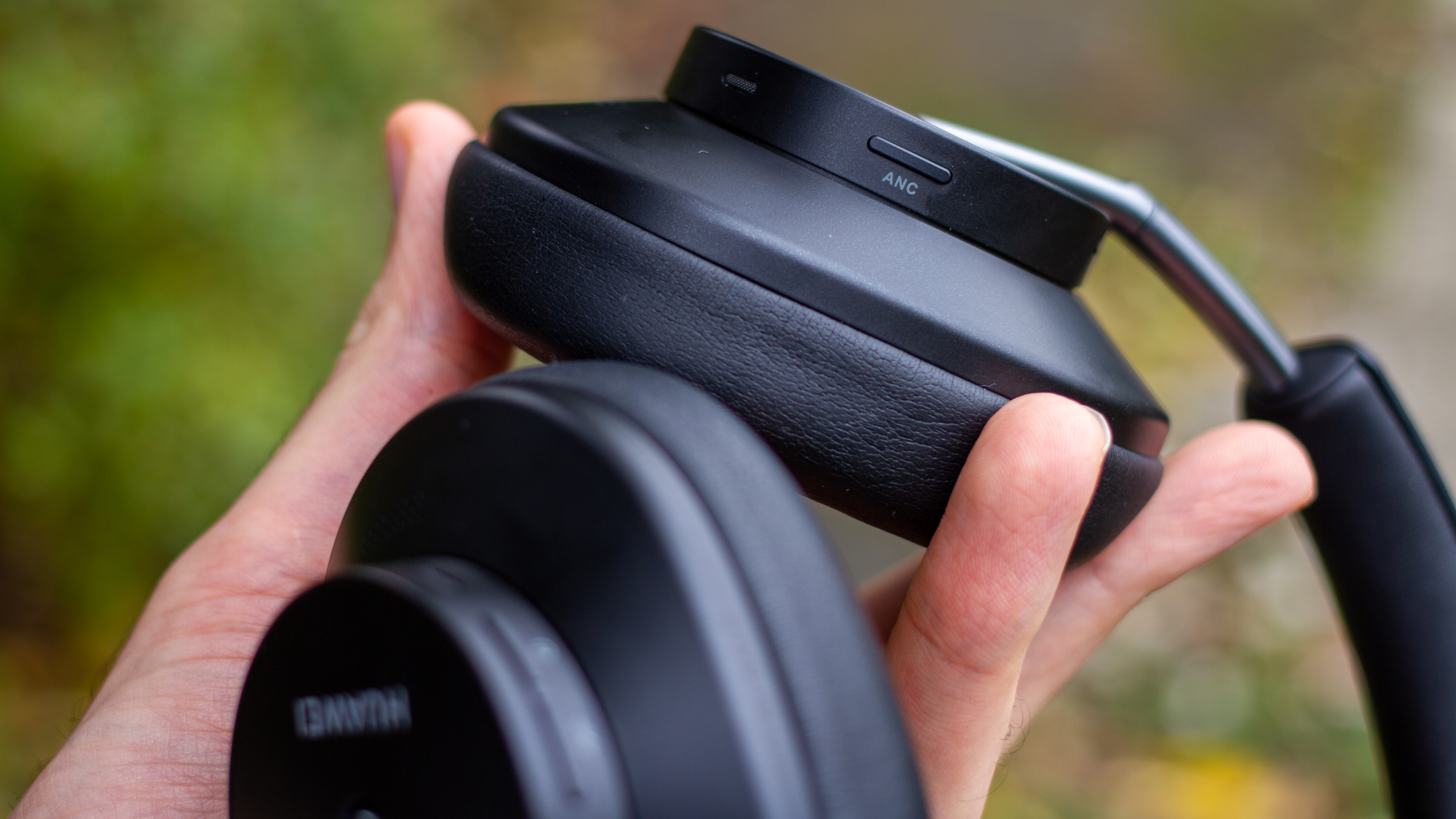
Buy them if...
You want great value for money
You're getting a lot for your money with the Huawei FreeBuds Studio, with features you'd expect from pricier headphones.
You want comfortable headphones
Planning on long listening sessions? These headphones are comfy enough to last.
You already have a Huawei phone
You need a Huawei phone with EMUI 11 to take advantage of pop-up pairing and L2HC codec for reduced quality loss.
Don't buy them if...
You're an audiophile
If you want the best audio experience money can buy, the Huawei FreeBuds Studio aren't for you.
You need really heavy bass
With a diminished low frequency extension, bass heads won't be impressed by these headphones.
You have an iPhone
You can still use the Huawei FreeBuds Studio if you have an iPhone, but if you want to make use of the app support, you'll be disappointed.
- Looking for more? These are the best noise-cancelling headphones you can buy
Basil Kronfli is the Head of content at Make Honey and freelance technology journalist. He is an experienced writer and producer and is skilled in video production, and runs the technology YouTube channel TechEdit.

